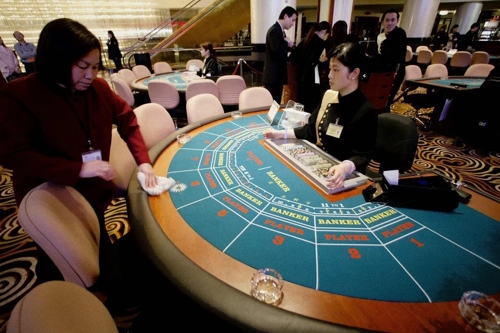Ethical considerations are paramount in the realm of online betting 먹튀검증 and gambling to foster responsible wagering practices. With the ongoing evolution of sports betting and online gambling, the necessity of setting guidelines to uphold ethical behavior and address the risks of excessive gambling grows. This guide delves into the core principles of ethical betting and offers practical strategies for engaging in responsible wagering.
Understanding Ethical Betting
Ethical betting embodies a framework of principles and practices designed to foster responsible conduct in individuals participating in sports betting and online gambling. At its essence, ethical betting entails making well-informed choices, practicing self-discipline, and valuing personal and collective well-being above mere financial incentives.
Key Principles of Ethical Betting
- 1. Transparency: Building trust between betting operators and consumers hinges on transparency. Ethical platforms must offer clear, detailed information on wagering terms, odds, payouts, and potential risks.
- 2. Responsible Marketing: It’s crucial for betting operators to market responsibly, steering clear of targeting vulnerable individuals or encouraging excessive gambling. Prioritizing responsible gambling messages and providing support resources for those with gambling-related issues should be central to ethical marketing strategies.
- 3. Protection of Vulnerable Individuals: Specific groups like minors and individuals battling gambling addictions face heightened risks in the realm of gambling. Ethical betting practices should include protective measures such as age verification processes and self-exclusion options to shield these individuals from harm.
- 4. Fairness and Integrity: Upholding fairness and integrity across all operational facets is paramount for ethical betting platforms. This includes maintaining fair odds, resolving disputes equitably, and combatting fraudulent activities. Ensuring a level playing field for all participants is fundamental to upholding the integrity of sports betting and online gambling.
Strategies for Responsible Wagering
Ethical principles offer a foundation for encouraging responsible betting habits, yet individuals hold a crucial responsibility in protecting themselves from the inherent risks of gambling. Embracing the strategies below enables individuals to partake in responsible wagering and reduce the chances of adverse outcomes.
Set Limits and Stick to Them
Setting financial and time limits is essential for maintaining control over one’s gambling activities. Before placing any bets, individuals should establish a budget that reflects their disposable income and entertainment preferences. Additionally, setting time limits can help prevent excessive gambling sessions and mitigate the risk of developing problematic gambling habits.
Practice Self-Awareness
Self-awareness is key to identifying potential warning signs of problematic gambling behavior. Individuals should regularly assess their motivations for gambling and monitor their emotions while engaging in betting activities. By recognizing triggers and practicing self-reflection, individuals can intervene early and seek support if they begin to experience difficulties controlling their gambling behavior.
Utilize Responsible Gambling Tools
Numerous betting operators provide an array of responsible gambling tools tailored to help individuals effectively manage their wagering activities. These tools encompass self-exclusion programs, deposit limits, and reality checks, offering timely prompts regarding the duration and extent of gambling sessions. By utilizing these resources, individuals can uphold command over their betting behavior and reduce the likelihood of encountering gambling-related issues.
Seek Support and Assistance
Individuals grappling with problematic gambling behavior can benefit significantly from seeking assistance from trained professionals. Support from confidential helplines, counseling services, and support groups plays a crucial role in overcoming challenges and regaining control over their lives for those impacted by gambling addiction. By reaching out for help, individuals can tap into essential resources and support networks vital for recovery and well-being enhancement.
Conclusion
Ethical betting forms the foundation of responsible wagering practices, embodying values of transparency, fairness, and integrity. By upholding ethical standards and employing strategies for responsible gambling, individuals can savor the entertainment aspect of sports betting and online gambling while mitigating the risks linked to excessive wagering. Through a unified dedication to ethical conduct and prudent decision-making, we can cultivate a safer and more delightful environment for all participants in the realm of online betting and gambling.





/cloudfront-us-east-1.images.arcpublishing.com/pmn/ZJRPRJF6TJCW5D6UYKZWAKLB3I.jpg)